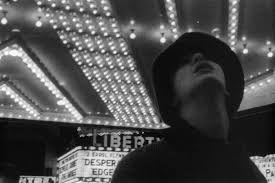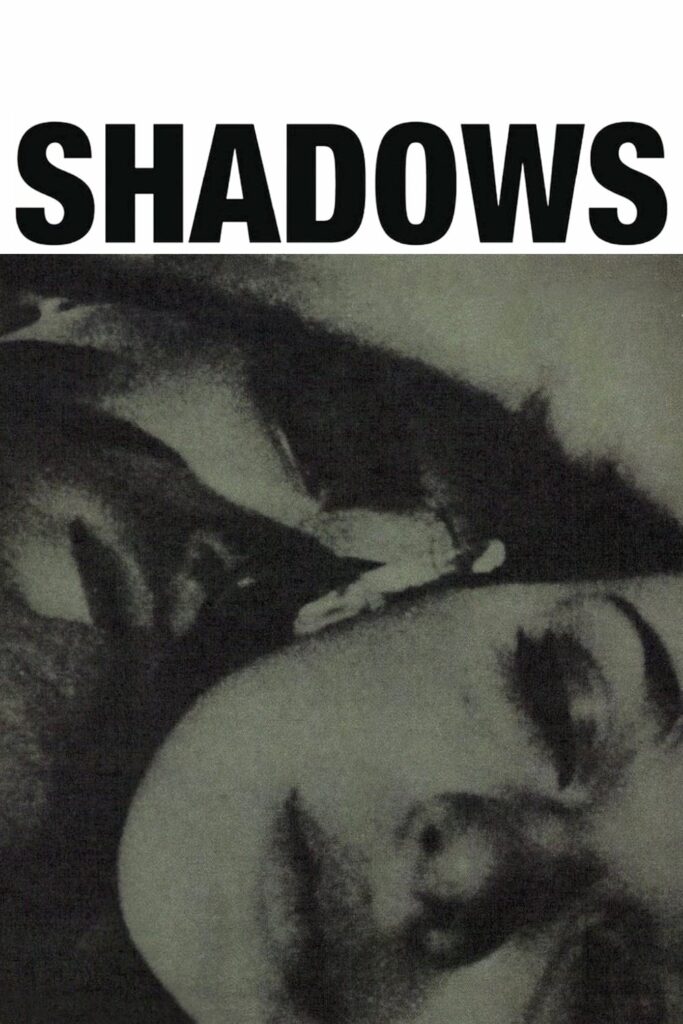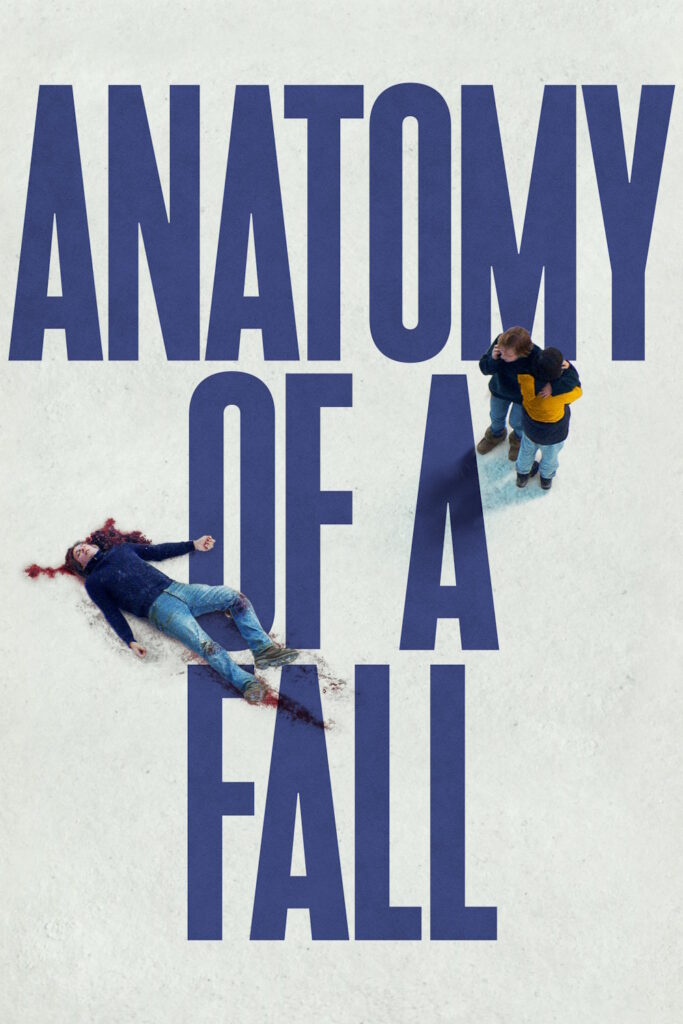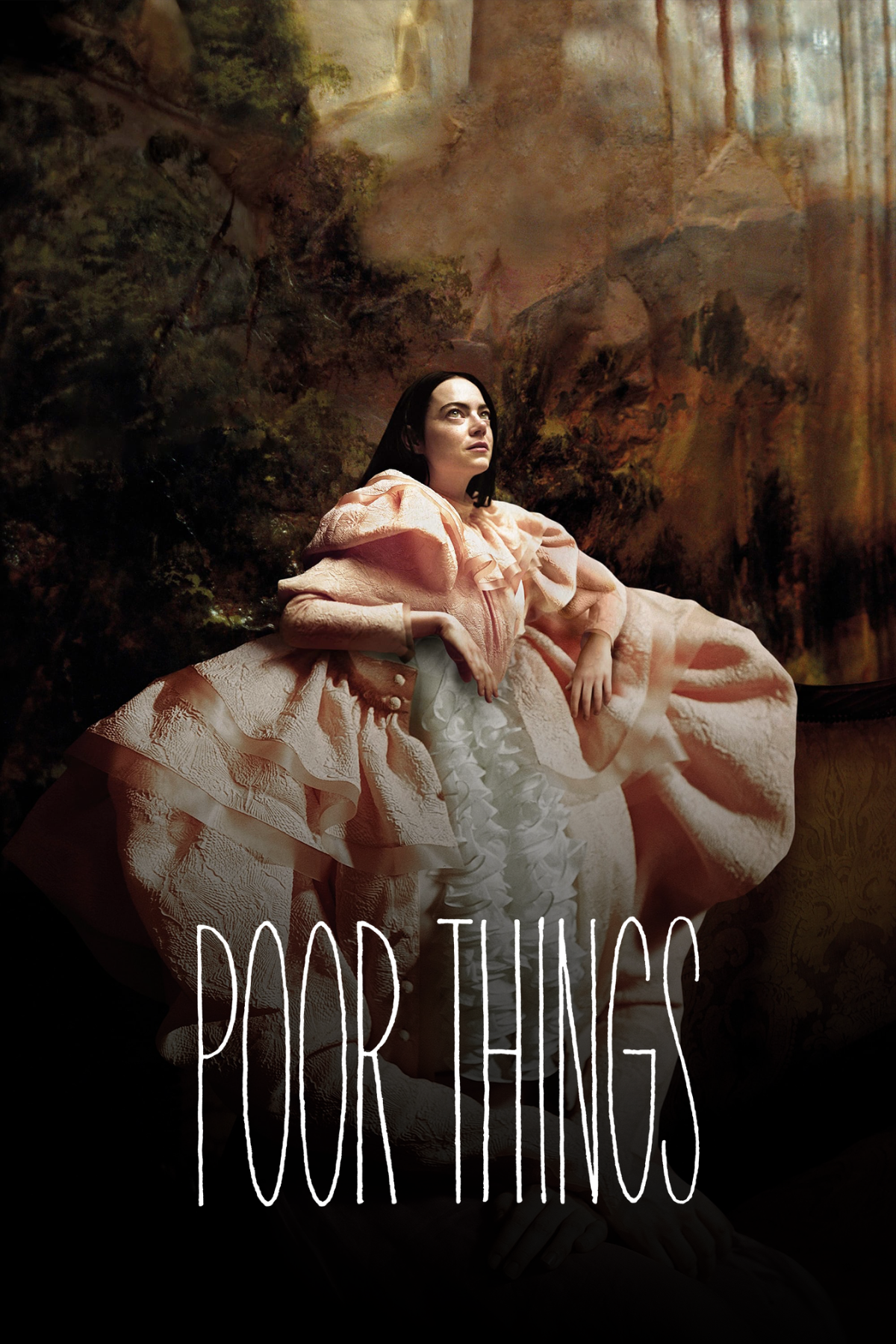Shadows is Directed by John Cassavetes and Stars Ben Carruthers, Lelia Goldoni and Hugh Hurd
Review: Released in 1958, Shadows is John Cassavetes’ debut movie and spawns the birth of a newer generation of filmmaking. His cinema-verité style is on full display in this overflowing, messy film about love lost and hopeless ambition.

John Cassavetes‘ 1958 debut feature Shadows feels like a jolt to the system amidst the polished studio masterpieces of its era. While contemporary classics like Alfred Hitchcock’s Vertigo and Orson Welles’ Touch of Evil were dazzling with precision and grandeur from the era prior, Shadows throws open the window on a different kind of filmmaking; raw, improvisational, and pulsating with the messy rhythms of real life. It’s an early example of Cassavetes’ vision, but Shadows doesn’t feel like a rough draft, rather a bold manifesto for a new kind of American cinema.
The film plunges us into the gritty nightlife of Manhattan, following a family of African American musicians struggling with love, ambition, and societal prejudice. Ben (Ben Carruthers), the brooding trumpet player, wastes his talent in dive bars, while his charismatic brother Hugh (Hugh Hurd) navigates the fickle world of jazz bookings. Their younger sister Lelia (Lelia Goldoni), a fledgling writer, grapples with love and independence, caught between an intellectual older lover and a passionate, bigoted younger one.
Cassavetes crafts his world with an intoxicating mix of sensory overload. The soundtrack pulsates with frenetic jazz, often bleeding into dialogue and amplifying the characters’ emotional eruptions. The camerawork is restless, weaving through crowded apartments and smoky bars, capturing the immediacy of their interactions. And the actors, a vibrant mix of professionals and street-cast performers, deliver their lines with a raw power, their emotions laid bare, unable to hold them back.
Reviews for Films like Shadows (1958)
Ben Carruthers, in his film debut, embodies Ben’s tortured soul with a mesmerizing stillness. His face, a canvas of unspoken anxieties, captures the quintessential nature of a man adrift. Lelia Goldoni brings fire and vulnerability to the younger sister Lelia, her journey towards self-discovery both exhilarating and heartbreaking. The entire cast breathes life into their characters, each one distinct and brimming with lived-in authenticity.
But Shadows isn’t without its flaws. The improvisational style can occasionally lead to meandering narratives and uneven pacing. Some viewers might find the film’s chaotic energy overwhelming, a sharp contrast to the controlled narratives of mainstream cinema, especially given the passing of time between this film’s release and current filmmaking trends. But for those who embrace its rawness, Shadows becomes a captivating experience with technical brilliance and a clear understanding that John Cassavetes would end up being a filmmaker to watch for in the future.
More than just a debut film for John Cassavetes, Shadows stands as a landmark in American independent cinema. It challenged the conventions of its time, paving the way for a generation of filmmakers who would prioritize truth and human connection over polished artifice. While it may not reach the heights of Cassavetes’ later masterpieces, its impact as a groundbreaking work is undeniable.
And while he would only refine and tweak his style more and more with each passing movie, Shadows is a captivating and groundbreaking film that stands as the first pillar to John Cassavetes’ raw talent and vision and singular career. Its messy beauty, pulsating energy, and unflinching portrayal of human complexities make it a cornerstone of the new independent filmmaking movement in the late 1950s.
Watch Shadows on The Criterion Channel and VOD
Shadows Movie Cast and Credits

Cast
Ben Carruthers as Ben
Lelia Goldoni as Lelia
Hugh Hurd as Hugh
Anthony Ray as Tony
Dennis Sallas as Dennis
Tom Reese as Tom
Crew
Director: John Cassavetes
Writer: John Cassavetes
Cinematography: Erich Kollmar
Editors: John Cassavetes, Maurice McEndree
Composer: Charles Mingus
Classic Movie Reviews from Cinephile Corner
- The Exorcist Review: William Friedkin Redefines Horror with 1973 Classic Possession Movie
- Grand Illusion Movie Review: A Prescient Anti-war Film in the Canon of Cinema
- WALL-E Movie Review: A Pixar Magnum Opus in Visual Storytelling
- Ratatouille Movie Review: Brad Bird Directs the Most Unique and Beautiful Pixar Film Imaginable


